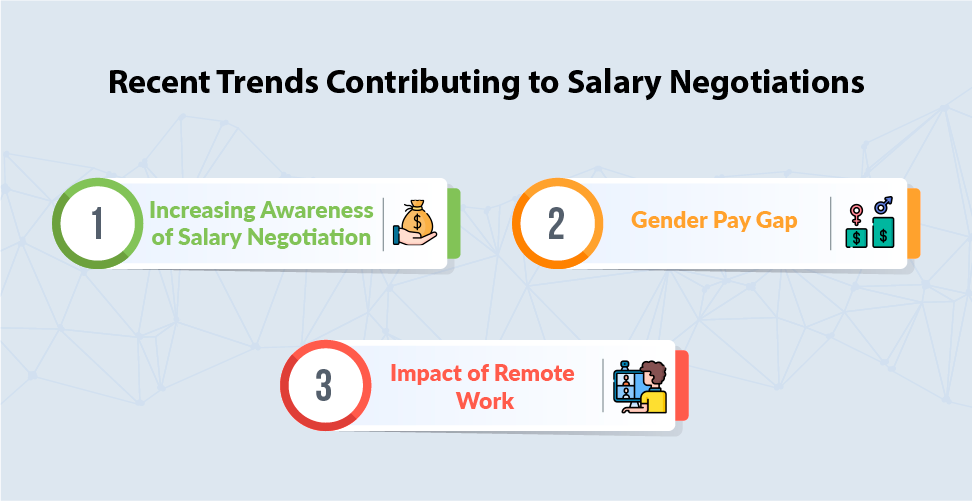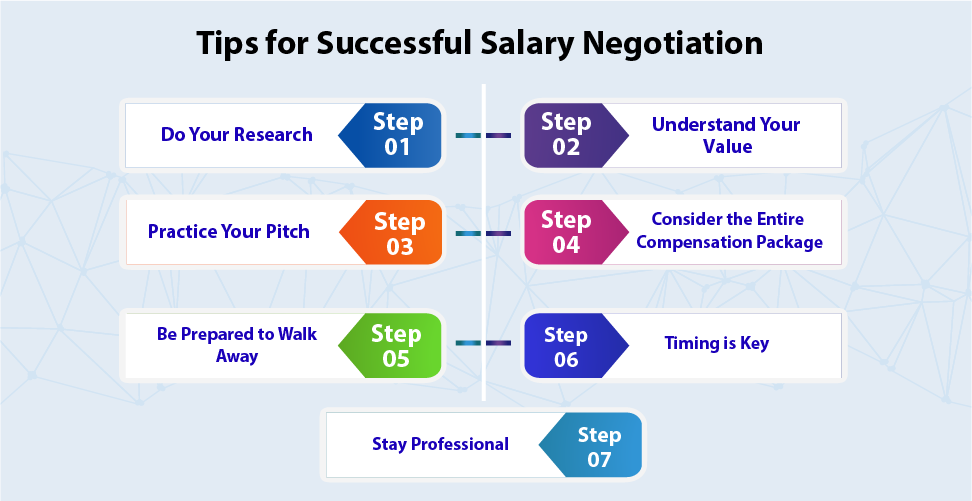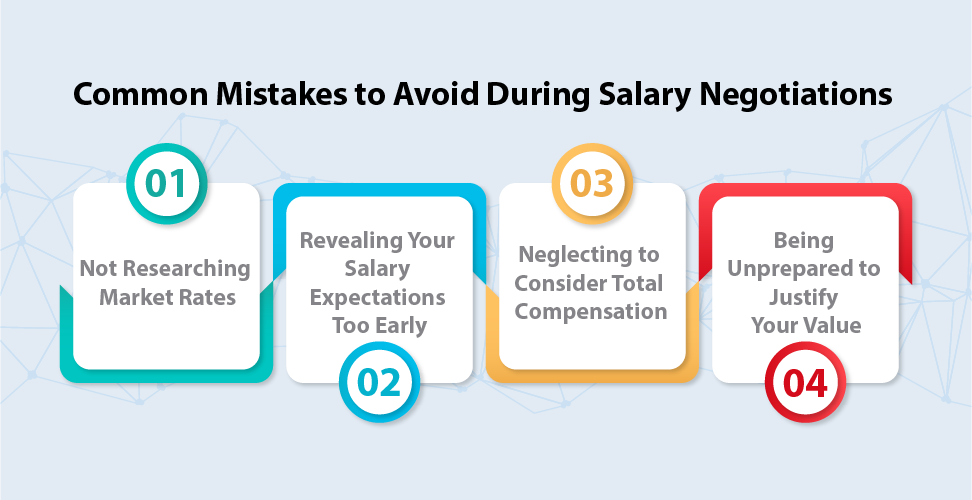Table of Contents
ToggleIntroduction

Don't miss out on your chance to work with the best
Apply for top global job opportunities today!
Why is Salary Negotiation Important?
Read in detail: TOP 16 REASONS YOU’RE NOT GETTING JOB OFFERS IN 2024 Recent Trends and Statistics

1. Increasing Awareness of Salary Negotiation
Recent trends indicate that more professionals are becoming aware of the importance of salary negotiation. LinkedIn’s 2022 Workforce Confidence Index revealed that 38% of respondents negotiated their salary in their most recent job offer, up from 34% in 2020. This increase suggests a growing recognition of the need to advocate for fair compensation.
2. Gender Pay Gap
Despite the increased awareness, the gender pay gap remains a significant issue. The World Economic Forum’s Global Gender Gap Report 2021 noted that women globally earn approximately 37% less than men. Negotiation plays a critical role in bridging this gap, as women who negotiate their salaries can significantly narrow the earnings disparity.
3. Impact of Remote Work
The rise of remote work has also influenced salary negotiations. A 2021 report by Payscale found that 25% of remote workers successfully negotiated higher salaries compared to 20% of their on-site counterparts. The flexibility and cost savings associated with remote work have empowered employees to leverage better compensation packages.
Tips for Successful Salary Negotiation

1. Do Your Research
Before entering any negotiation, it’s essential to gather information about the typical salary range for your position and industry. Websites like Glassdoor, Payscale, and LinkedIn Salary can provide valuable insights. Knowing the market rate gives you a solid foundation to make a compelling case for your desired salary.
2. Understand Your Value
Identify your unique skills, experiences, and achievements that make you a valuable asset to the company. Quantify your contributions where possible, such as increased revenue, cost savings, or successful projects. Highlighting your value helps justify your salary request.
3. Practice Your Pitch
Rehearse your negotiation conversation with a friend or mentor. Practice helps you articulate your points clearly and confidently. Focus on being assertive but not aggressive and prepare to handle counterarguments gracefully.
4. Consider the Entire Compensation Package
Salary is just one component of your compensation. Benefits such as health insurance, retirement plans, bonuses, stock options, and flexible working arrangements also contribute to your overall package. Be open to negotiating these elements to create a comprehensive and satisfying offer.
5. Be Prepared to Walk Away
While it’s important to negotiate, it’s equally crucial to know your bottom line and be prepared to walk away if the offer doesn’t meet your minimum requirements. Having other opportunities lined up can give you the confidence to make this decision.
6. Timing is Key
Timing can significantly impact the outcome of your negotiation. Ideally, salary discussions should occur after you’ve received an offer but before you accept it. Bringing up salary too early in the process can be premature, while waiting too long might weaken your negotiating position.
7. Stay Professional
Maintain a professional demeanor throughout the negotiation process. Express gratitude for the offer and remain courteous, even if the negotiation becomes challenging. A positive attitude can leave a lasting impression, regardless of the outcome.
Read in detail: THE ROLE OF SOCIAL MEDIA IN JOB HUNTING Common Mistake to Avoid During Salary Negotiations

Here are some common mistakes to avoid during salary negotiations:
1. Not Researching Market Rates: Failing to research the average salary range for your position and industry can leave you uninformed and potentially accepting a lower offer.
2. Revealing Your Salary Expectations Too Early: It’s often better to let the employer discuss salary first, as this gives you more leverage during negotiations.
3. Neglecting to Consider Total Compensation: Benefits, bonuses, stock options, and other perks can significantly impact your overall compensation package. Don’t focus solely on base salary.
4. Being Unprepared to Justify Your Value: You should be ready to explain why you’re worth the salary you’re requesting, demonstrating how your skills, experience, and achievements align with the company’s goals and contribute to its success.
Conclusion
Negotiating your salary is a vital skill that can enhance your career trajectory and financial well-being. By conducting thorough research, understanding your value, and practicing your negotiation skills, you can confidently advocate for the compensation you deserve. As awareness of the importance of salary negotiation grows, more professionals are seizing the opportunity to secure better pay and benefits. Remember, the willingness to negotiate not only benefits you but also sets a precedent for fair compensation practices in the workplace. So, are you ready to take control of your financial future and negotiate your way to success?
Take control of your career and land your dream job
Sign up with us now and start applying for the best opportunities!


